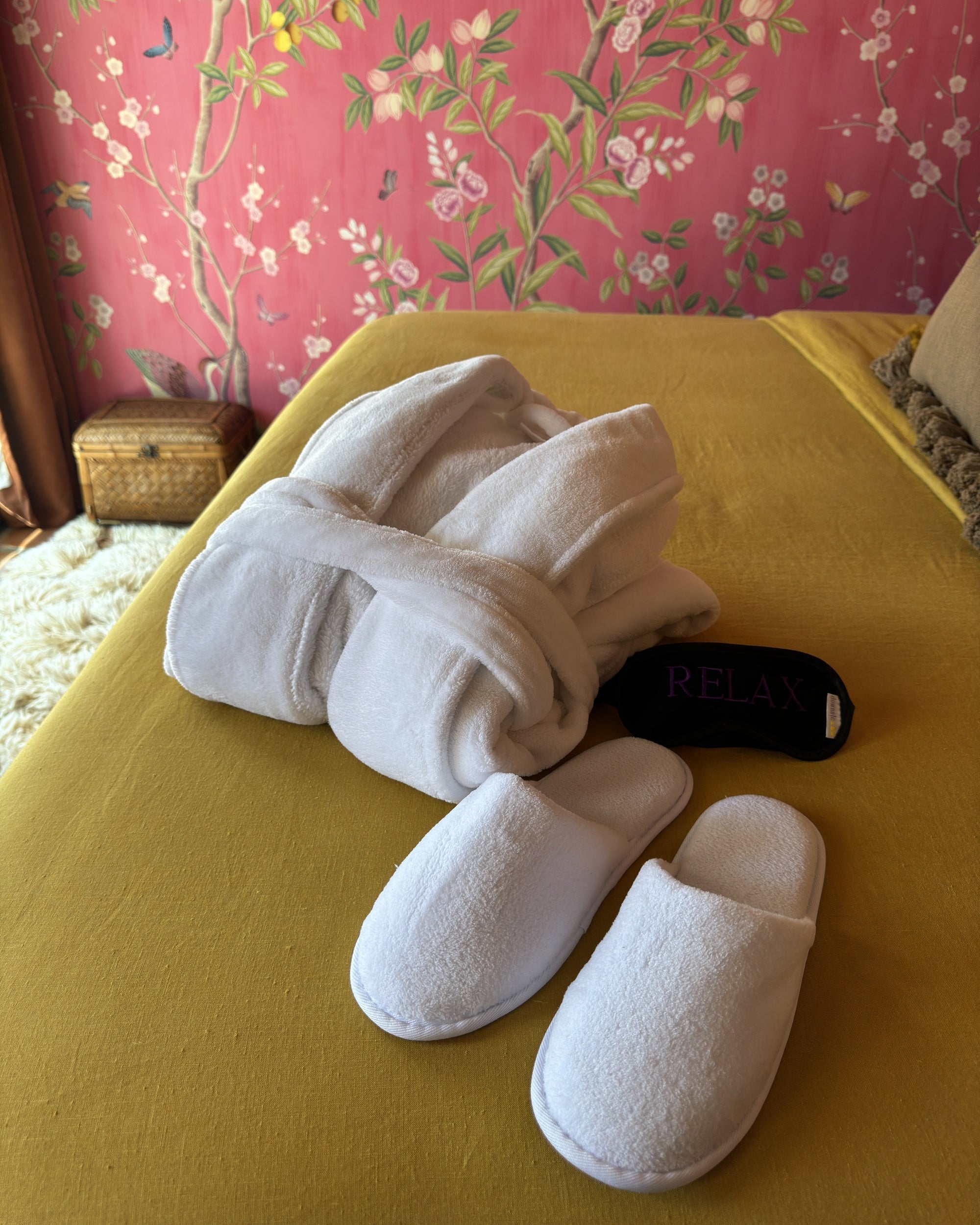Women represent the vast majority of those choosing to travel on their own, and the demand from solo female travelers appears to be growing. Traveling alone can be amazing; it offers the freedom to do what you want, when you want. Whether you’re on your way to join your traveling companion, or you’re going it totally alone, there are a few things you might want to consider when you’re traveling solo.
Traveling Alone Requires a Bit More Planning
Your safety underlies each part of your planning for a solo trip. That’s not to say that safety shouldn’t be considered when you travel with other people, it’s just that you’ll have only yourself to fall back on should anything go wrong on your solo trip so it’s worth some thought ahead of time. As a general rule, you’ll want to be more aware of your surroundings since you won’t have the safety that comes from being part of a group.
Research Your Destination
Read as much travel advice as you can for your destination. Determine whether you’re visiting a place that has particular risks for women, LGBTQI, or people of specific ethnic or cultural backgrounds. Understand if the destination should be avoided or ways to minimize any risks.
1. Don’t assume everyone speaks English.
Know what languages are spoken when you travel abroad. Learn a few words such as “hello,” “please,” and “thank you.” Greeting shopkeepers when you enter a store is a nice habit to form. Consider downloading a translation app to your phone before you go.
2. Know how your insurance coverage works.
Understand the availability of healthcare and how it’s paid for in the countries you will travel through. Make sure your health insurance covers you in case of a medical emergency. Universal healthcare in other countries does not automatically cover American visitors. Will you need to be flown somewhere else for care? Will that be covered? If you’re on an adventure or sporting trip away from cities or nearby medical care, this becomes even more critical.
3. Pack necessary medications.
As we discussed in our article “Best Hacks to Maintain Quality Sleep While Traveling,” linked below, you may not be able to replace prescription or over-the-counter medications at your destination, so you should make sure to take enough medication with you for the trip, including unexpected delays. It should go in your carry-on luggage, and you should carry it in the prescription container.
Although the TSA does not require medication to be in prescription bottles, a note on the website advises “states have individual laws regarding the labeling of prescription medication with which passengers need to comply.” If you’re traveling to another country, be sure both prescription and over-the-counter medications are allowed. What is considered a “controlled substance” will vary from country to country. You may want to carry a prescription or letter from your healthcare provider regarding your need for the medication. The CDC website provides suggestions with regard to checking with your destination's embassy before traveling with medications.
4. Don’t overpack.
Remember, it will be just you transporting your luggage. You won’t have a traveling companion to stay with the luggage while you run into a store. Be sure you pack only what you will need in luggage you can maneuver.
Choose Your Accommodations Carefully
You’ll want to pick places to stay that will offer as much safety for you and your possessions as possible.
1. Arrive during the day.
It’s safer and easier to get your bearings when it’s still light outside.
2. Make contacts ahead of time.
Let any friends or extended family know you’ll be in the area. Introduce yourself to the concierge or hotel manager by email before your stay.
3. Get the lay of the land as soon as you arrive.
Know what neighborhoods to avoid in the same way that you know what neighborhoods to avoid when you’re at home. Find out if the city you’re visiting offers a hop on, hop off bus tour. It’s a great idea on your first day when you’re jet lagged but don’t want to sleep. Ride the entire loop listening to fun facts about the city and taking note of the parts of town you drive through. You don’t have to jump off but feel free.
4. Don’t overshare.
Keep the name of your hotel and your room number hidden from others. Avoid advertising that you’re traveling alone.
Although they might be less expensive, “shared accommodation can pose a risk to solo travellers, particularly women,” according to safety tips offered to travelers by the Australian Government’s smartraveller website.
5. Understand how local transportation operates.
If you’re coming from a big city in the U.S. that has easy access to mass transit or ride apps, recognize that your destination might not. Figure out ahead of time how you’ll get around. If you’re going to be renting a car, know whether your destination requires an International Driving Permit for your car rental. An IDP can be obtained from the American Automobile Association (AAA) in the US prior to your travel.
Socialize Safely
One of the most amazing parts of traveling alone is the opportunity to meet and interact with new people with whom you can share new experiences.
1. Be aware of your surroundings.
When you’re out and about, don’t completely lose yourself in the amazing surroundings. Always be aware of what’s going on around you. Walk confidently and dress in the style of the locals.
2. Stay healthy while eating and drinking abroad.
Tasting local food is amazing but be careful with what you eat and drink when traveling in areas where hygiene and sanitation are inadequate or unknown. The CDC Yellow Book provides a list of safe food practices in such areas. As at home, keep an eye on any open drink while sitting at a bar or communal table.
3. Learn to say “no.”
In addition to learning enough words to be polite, “Learn how to say ‘no’ firmly in the local language and the nonverbal gesture for no. It can help if you’re getting unwanted attention.”
Stay Connected
All complaining about our addiction to our cell phones aside, they do allow us to stay connected when we travel alone.
1. Travel apps can be helpful.
Download all the necessary travel apps to one folder on your phone, particularly the apps for communicating such as WhatsApp.
2. Keep contact information accessible.
Contact information includes information for people and places you will be visiting, as well as your emergency contacts at home. Keep the list on your phone, as well as on a sheet of paper in case you lose access to your phone.
3. Share your plans with someone you trust.
Give a digital copy of your passport to someone not traveling with you who can send it to you, if necessary. In our best hacks article, we recommend doing the same with a digital copy of your credit cards.
You will also want to have someone with whom you check in regularly. Failure to check in will alert them to a problem. Know the time difference between your location and theirs.
4. Develop routines.
Following routines can avoid mishaps. Place your wallet and passport in a secure pocket or carrier and return them to the same place after each use. Consider travel clothing with pockets that can be secured or a travel backpack. Our favorite is the Anti-Theft Heritage Backpack from travelon. Remember to double- or triple-check the safe in your room, as well as any closets and drawers, into which you might have placed your belongings before checking out.
Be Prepared for Some Loneliness
There’s nothing wrong with moments of loneliness. It doesn’t mean the choice to travel solo was wrong. Taking photos and making notes about your experience to share later can abate that loneliness. You might also consider looking for a group activity on your solo journey such as a guided tour or a sport you enjoy at home. Our guest blogger Scott always checks out local bicycle shops for cyclists he can join for a ride. If you’re a bridge player, you can look for a game in the U.S. by going to the American Contract Bridge League's website. Bridge is a globally played game so you can look for the bridge league in the country you’re visiting, as well.
If you’re considering a solo trip, you may want to start small to see how you do. Advice from experts at REI is to begin going solo “somewhere close to home for a few days to get used to being on your own.” Chances are good, once you’ve tried it, you’ll be a fan for life.
Travel often and travel safely.
-Team at down etc
Read more:
Best Hacks to Maintain Quality Sleep While Traveling
Summer Travel Tips for Cyclists and Other Sports Travelers
11 Tips to Travel More Calmly and Comfortably this Summer
About down etc
For over twenty years, down etc has worked with hoteliers and professional housekeepers in hotels around the world to provide the pillows and bedding that will offer hotel guests memorably great sleep. Through our retail website, we seek to provide products that will result in the same quality sleep for our customers at home. We believe in the restorative power of a great night’s sleep, whether at home or away.
DISCLAIMER: You should not rely on any of the foregoing as a substitute for, nor does it replace, professional medical or health and wellness advice, diagnosis, or treatment by a healthcare professional. If you have specific concerns or a situation in which you require professional or medical advice, you should consult with an appropriately trained and qualified specialist, such as a licensed physician, psychologist, or other health professional. Never disregard the medical advice of a physician, psychologist, or other health professional, or delay in seeking such advice, because of the information or content offered or provided on the Site. The use of the Site and all information and content contained thereon is solely at your own risk.






